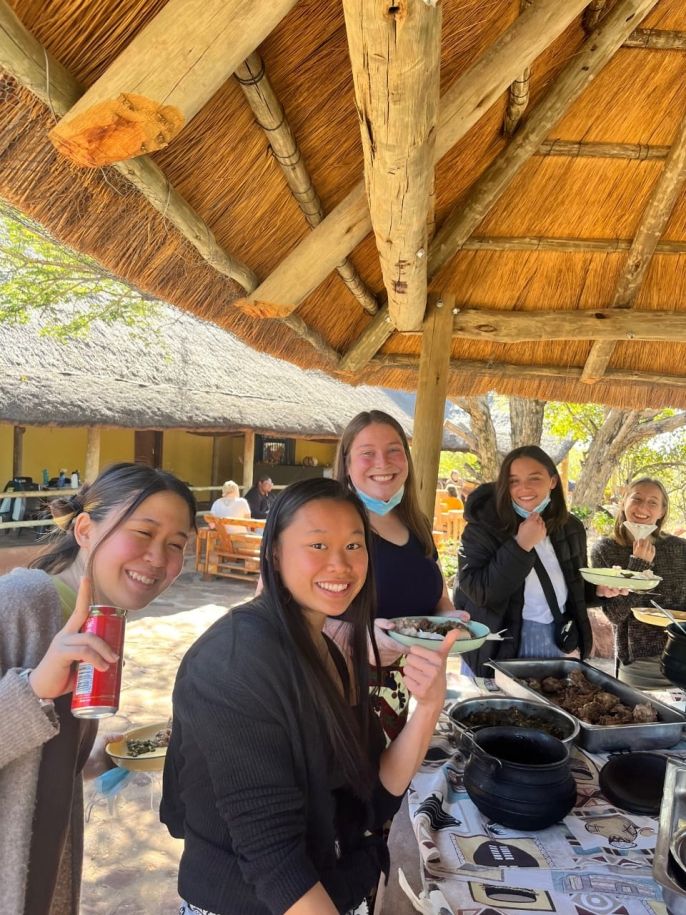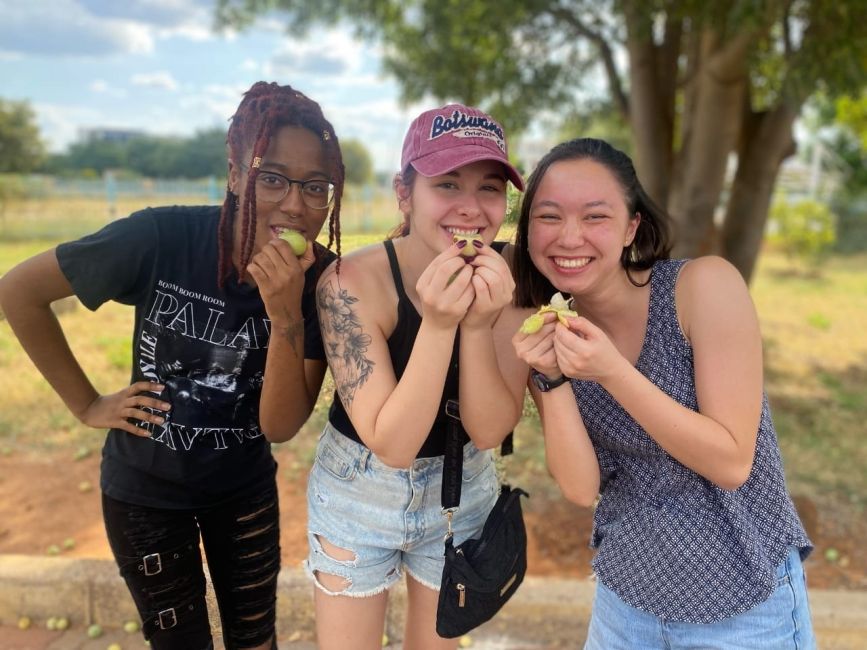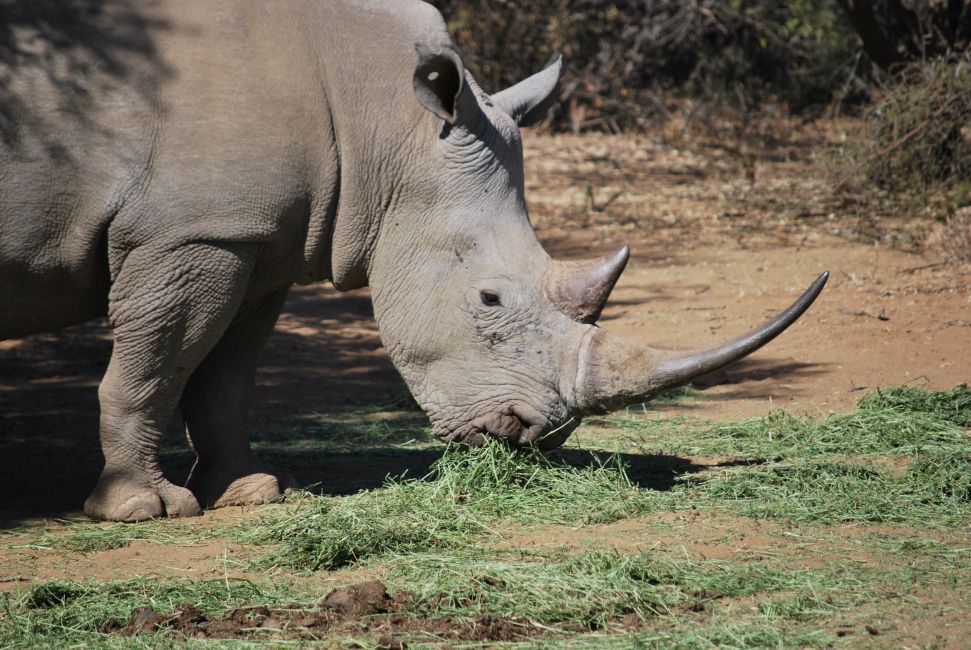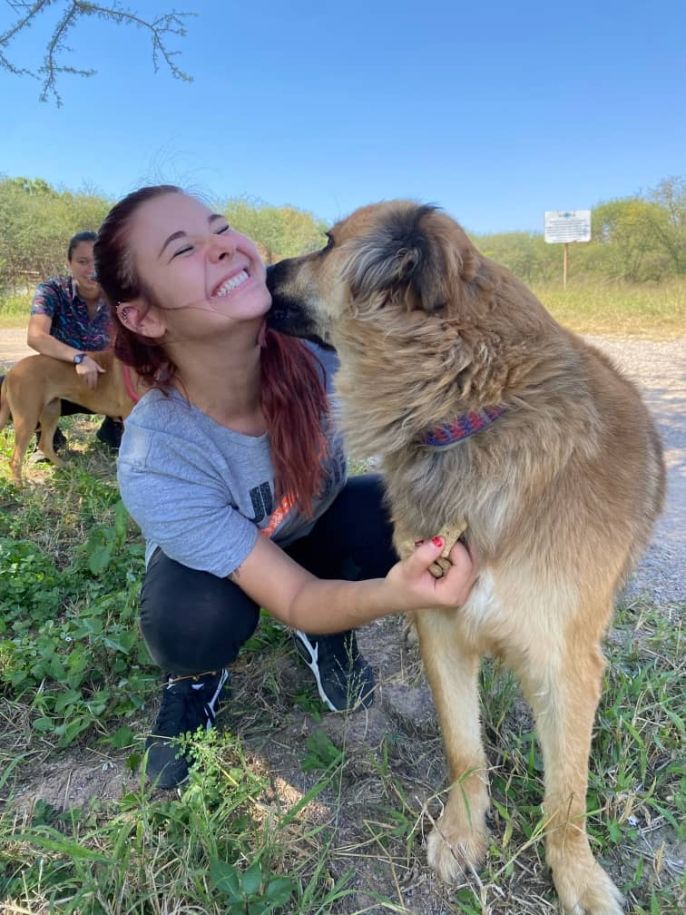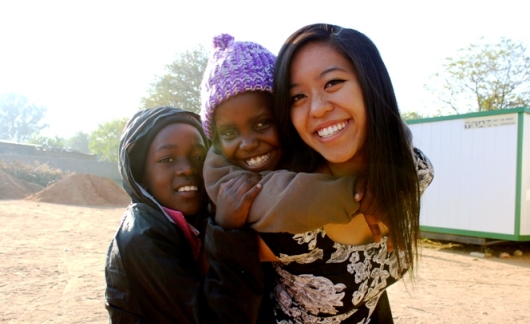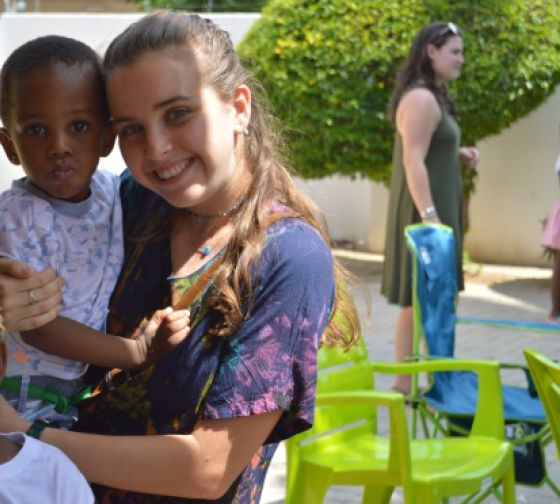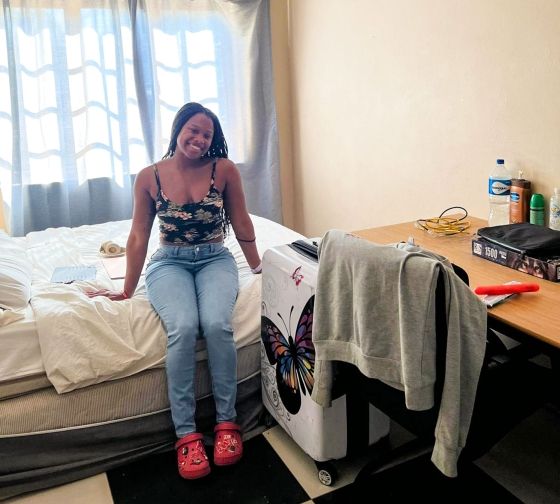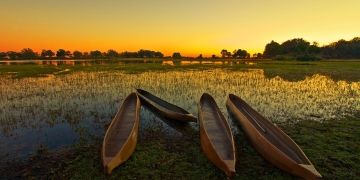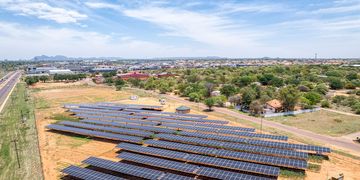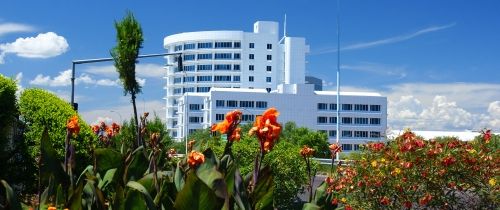
Arts + Sciences at University of Botswana
Unique Experiences
Enjoy life in the village in modern-day Botswana
and be exposed to a fascinating blend of tradition and modernity
Visit Khama Rhino Sanctuary
to discover Botswana’s rich wildlife and learn how communities are part of conserving the country’s ecology system
Enhance your global perspective
by taking all your classes with local students
Your Destination
Gaborone is Botswana’s vibrant capital, known for its strong sense of community, dynamic culture, and growing role in regional development. The city blends traditional heritage with modern infrastructure, offering students opportunities to explore local art, history, and social innovation. Whether you're studying public health, development, environmental science, or the humanities, Gaborone is the perfect place to study abroad.
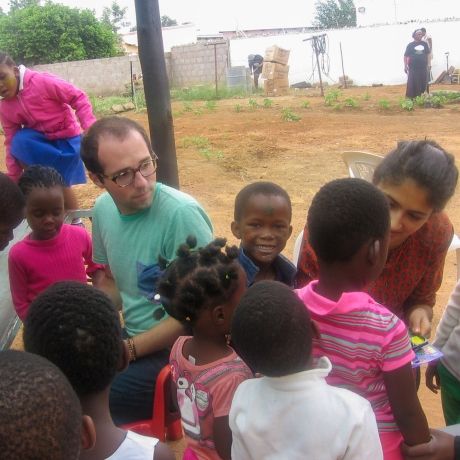
Program Highlights
- Academic Courses: Choose from CIEE courses, host institution courses and online courses delivered by CIEE’s global partner, ASU, that align with your academic major.
- Optional Internship Placements: Enhance your program with an optional for-credit internship that aligns with your career aspirations.
- Immersive Experiences: Participate in activities, excursions, study tours, and more that showcase your host city's culture, values, and local art, film, music, cuisine, and sports scenes.
- Cultural Projects: Volunteer with members of the local community, join university clubs to socialize with your peers, and attend local workshops and events to get to know your host city.
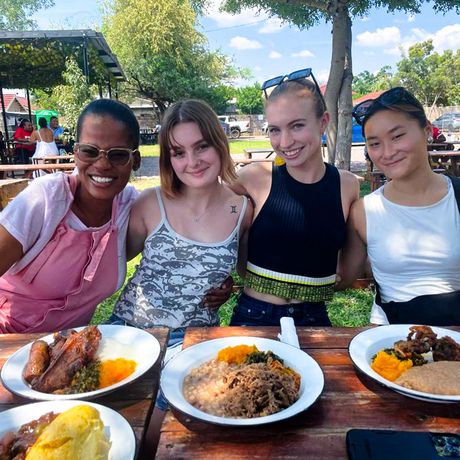
Excursions & Activities
CIEE’s excursions and cultural activities in Gaborone will open doors for you to explore Botswana’s rich diversity, language, culture, history, and timeless beauty in ways that will enhance your time abroad.
Samples of past excursions and activities:
- Expand your view of Botswana by participating in a village day visit and a braai (barbecue) with local families
- Practice your skills in the Setswana language as you explore historical and cultural sites
- Meet students by joining a campus sports team or student group, such as Young Women's Leadership Club, Wildlife Society, Psychology Club, etc.
Please note: Activities are based on past programs and are subject to change at CIEE's discretion to adapt to local circumstances and participant feedback. Our goal when arranging activities is always to enhance your experience.
Program Blogs
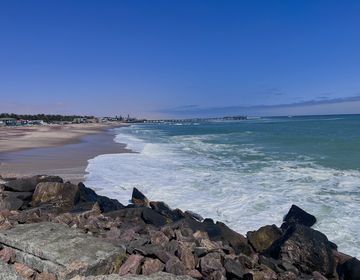
Seeing more: A road trip to Swakopmund, Namibia
Over the mid semester break at University of Botswana, I decided to go on a road trip with 11 other exchange students, several being from the United States, but there... keep reading
What I Packed to Study Abroad in Gaborone, Botswana
A master list of the items you should bring to study abroad in Gaborone, Botswana - including tips and tricks from my student perspective at the University of Botswana campus.
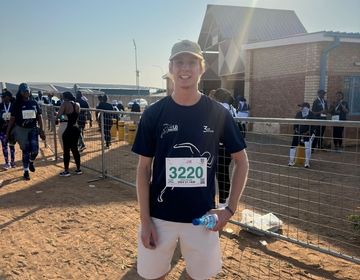
Arthur Pounds Join UB Marathon: Persevering through the finish line
Authored by: Ruby Pitinyane On October 13, 2024, Arthur Pounds (AJ) took part in the University of Botswana (UB) marathon at the UB Stadium, marking a significant milestone for him... keep reading
Housing & Meals
Housing
CIEE Gaborone offers diverse housing options to ensure you’re comfortable in your home away from home. From homestays to on-campus shared apartments, your accommodation preferences will be met.
Standard Housing: Includes a single room at a homestay, a shared double room in the university residence hall, or single accommodation in apartment style housing off campus. Residence halls are on the university campus while homestays are within 60 minutes of the university.
- On-Campus Residence Hall: Includes a shared double room with a local student at the university residence hall. The residence hall accommodation includes a shared bathroom and no kitchen facilities.
- Homestay: Homestays include a single room at a local homestay. Homestays boast a kitchen, living room, and a shared bathroom with the host family.
Select Plus Housing: Includes a single air-conditioned room in apartment style housing off campus, within a 15-minute commute to CIEE Gaborone. Select Plus housing requires an additional fee.
A note: The default criterion to assign housing is first-come, first-served; however, other factors may also be considered. If we cannot accommodate your first housing choice, we'll let you know before you arrive. Non-standard housing options require an additional fee that can be found in the program Dates and Fees.
Meals
- Residence Hall: Meals are not included, therefore students are responsible for all meals. Students have options to purchase meals at the local refectory or eat off-campus.
- Apartments: Meals are not included, therefore students are responsible for all meals.
- Homestays: Host families provide breakfast and dinner during the week and all meals on weekends. Students are responsible for their weekday lunches.
Academics
CIEE Gaborone: Study on the campus of the University of Botswana, the first higher education institution established in the country. The campus is conveniently located within walking distance of Riverwalk Mall – one of the oldest shopping centers in Botswana – where you will find a movie theatre, plenty of restaurants, and shops. CIEE Gaborone is situated on-campus where you will have access to a gym and computer labs.
University of Botswana: The University of Botswana was established in 1982 with the goal of improving economic and social conditions for the nation. With more than 15,000 students and a staff of more than 2,000, the university is committed to academic freedom and integrity, cultural authenticity, and internationalism. The University of Botswana offers state-of-the-art facilities including a newly built medical school and sports facilities open to all students. Except for the CIEE Language and Culture Practicum, all courses are taught by University of Botswana’s faculty.
Arizona State University (ASU): Brought to you by CIEE in partnership with ASU, enhance your international coursework with online classes that align with your degree requirements. ASU offers thousands of online courses in asynchronous 7.5-week sessions that fit within the CIEE academic calendar.
Course Information
Academic Projects
Communication, Journalism, and Media
Languages and Cultural Studies
Academic Projects
Communication, Journalism, and Media
Languages and Cultural Studies
Academic Projects
Communication, Journalism, and Media
Languages and Cultural Studies
University of Botswana Courses
For more information on historical course options and credits offered at the University of Botswana, please refer to the University Academic Calendar
Students may select from a variety of courses. This is a sample list of courses offered:
African Languages and Literature
- Politics and Southern African Poetry
- Epic Performance in Africa
- Popular Culture in Africa
- Women’s Literature in Botswana
- The Perception and Transcription of African Language Sounds
- Studies in African Aesthetics
Business and Economics
- Development Economics
- Economics of Botswana and Southern Africa
- Econometrics I
- Environmental Economics
- Industrial Relations
- Development Problems and Policy
Education
- Rural Development and Rural Extension
Engineering and Technology
- Design for Sustainability
- Design Fundamentals
- Engineering Mathematics I
- Engineering Materials
English
- Botswana Literature
- Currents of Thought in the Literature of the African Diaspora: African-American Literature
- Gender Issues in African Literature
Environmental Health and Environmental Science
- Environment and Disease
- Urbanization and Environment
- Energy and Environment
- Rural Development Theory and Practice
- Ecotourism
History
- African Cultures and Civilization
- African Diaspora in the Islamic World and Asia
- Historiography of Botswana
- Trade and Politics in Central African Kingdoms
Media Studies
- Media in Botswana
- Current Issues in African Media
- Economics and Social Issues in PR and Advertising
- Media Law
- Basics of TV Production
- Introduction to PR and Advertising
Political Science and Administrative Studies
- Africa in World Politics
- Politics in Botswana
- Politics of South Africa
- Botswana in the Region Context
Science
- Applications of Thermodynamic and Electrochemistry
- Dynamics of Savanna Ecosystems
- Regional Geology of Southern Africa
- Parasitology for Health Sciences
- Introduction to Quantum Mechanics
- Biology of Flowering Plants
- Chemical Informatics
- General Geology
CIEE proudly partners with ASU to deliver asynchronous, online coursework that aligns with your degree requirements from anywhere you study abroad.
CIEE and ASU offer courses online per program eligibility, at no additional charge. Be sure to review online courses with your home school advisor.
Check the CIEE Program Dates and ASU start dates below to maximize course options within your program!
Search ASU Online Courses BROWSE FAQs for more INFO
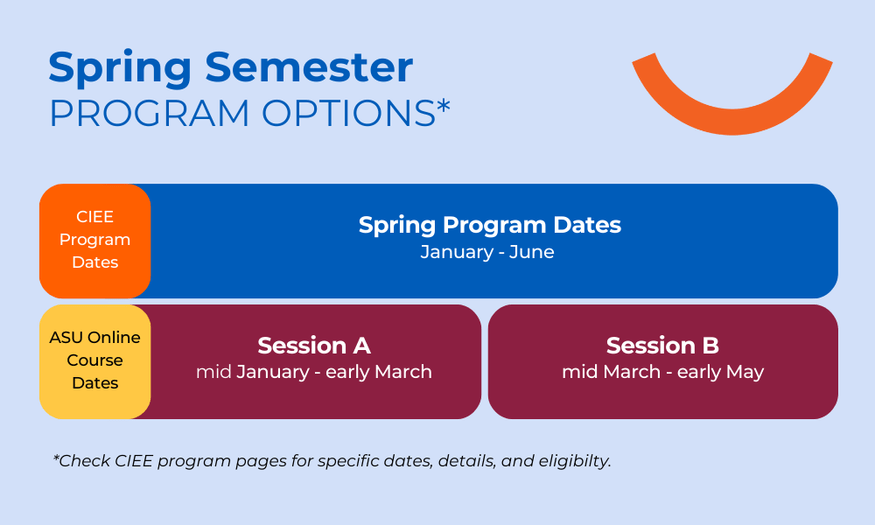
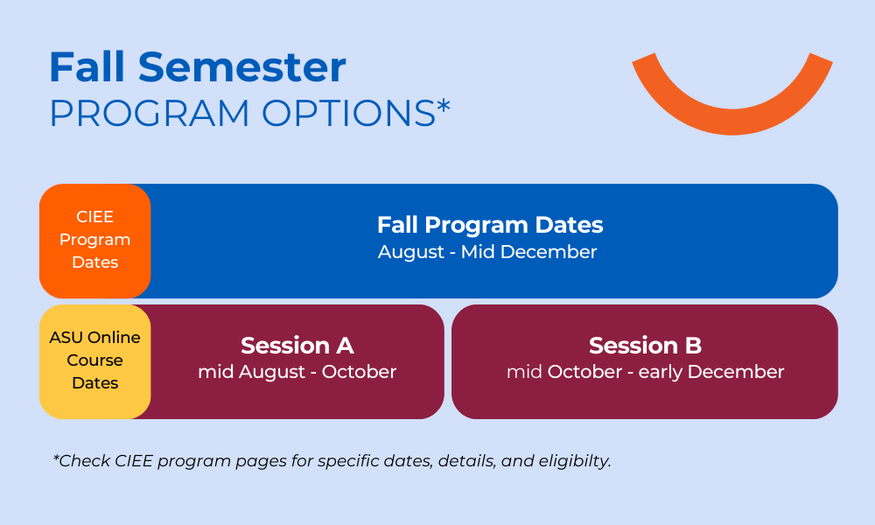
Note: This course listing is for informational purposes only and does not constitute a contract between CIEE and any applicant, student, institution, or other party. The courses, as described, may be subject to change as a result of ongoing curricular revisions, assignment of lecturers and teaching staff, and program development. Courses may be canceled due to insufficient enrollment.
"(GI)" denotes courses that originated at CIEE's Global Institutes and that are offered at multiple CIEE sites.
Discover Internship Opportunities
We're excited you're considering this program! Next, explore the types of internships you can choose from for an epic internship abroad with CIEE Study Abroad.
Explore Industry Options
Botswana's work scene is dynamic, driven by growth in eco-tourism, hospitality, public health, and development. The laid-back yet professional culture emphasizes family and community, promoting work-life balance. Colleagues often socialize after work, creating a supportive and relaxed environment.
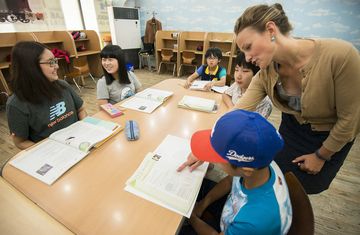
Education and Training
Experience international teaching methodologies and curriculum development in classrooms around Jordan, Spain, and more.

Health Science
Immerse yourself in global healthcare systems to study cross-border medical practices and address public health challenges.

Hospitality and Tourism
Polish your hospitality management skills by studying global tourism practices, customer service excellence, and more.
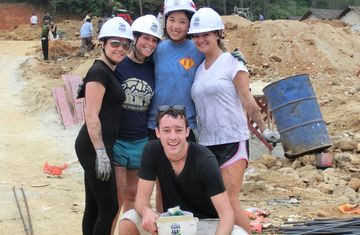
Human Services
Deepen your knowledge of human services through social welfare work, community development, and international advocacy.
Browse Internship Opportunities
Explore internship placements available through this program to find the right fit for your academic and professional goals.
Disclaimer: Internship placements are subject to availability and host employer hiring discretion. Application and payment of CIEE fees does not guarantee specific placement. This internship listing is for informational purposes only and does not constitute a contract between CIEE and any applicant, student, institution, or other party.
Scholarships & Grants
CIEE offers scholarships and grants annually to help students like you make your study abroad dream a reality.
Students who apply to this program are eligible for the following scholarships and grants:
- Wollitzer Merit Scholarships in Area or Comparative Studies
- Ping Scholarships for Academic Excellence
- Global Access Initiative (GAIN) Grants
- CIEE Gilman Go Global Grant
To be considered, submit the CIEE Scholarships & Grants application within your CIEE program application.
Dates & Fees
You get more for every dollar when you study abroad with CIEE, because our high-quality programs include everything from excursions to insurance. There are no hidden charges, and no disappointing surprises when you arrive.
Program |
Application Due |
Start Date |
End Date |
Fees & Housing |
|---|---|---|---|---|
| Program Spring 2026 18 weeks | Application Due Deadline Passed | Start Date | End Date | Fees & Housing $17,950 |
| Program Fall 2026 18 weeks | Start Date * | End Date * | Fees & Housing $17,950 | |
| Program Academic year 2026-2027 45 weeks | Start Date * | End Date * | ||
| Program Spring 2027 18 weeks | Start Date * | End Date * |
*Dates for this program are provided as tentative dates. Please consult with your study abroad advisor to confirm dates before purchasing your flights.
To help you budget, keep in mind that students are responsible for the cost of international airfare, local transportation, books and supplies, visas, and personal expenses. In addition, your college or university may charge additional fees for study abroad, or may require you to receive a transcript via CIEE's School of Record, which carries an additional fee of $500.
Program Fees
CIEE offers the most student support of any provider in its program fee, including an airport greeting, full-time leadership and support, orientation, cultural activities, local excursions, pre-departure advising, and CIEE iNext travel protection with benefits.
| Participation Confirmation | $300 * |
| Educational Costs | $14,956 ** |
| Housing | $2,500 *** |
| Insurance | $194 |
| Total Fees | $17,950 |
Optional Housing
CIEE accommodation options are detailed in the Housing section. Based on availability, Select or Select Plus Housing can be chosen during the application process for an additional fee. Housing is assigned on a first-come, first-served basis; however, other factors may also be considered.
| Select Plus Housing Fee | $2,850 |
Financial Aid
CIEE offers the most grants and scholarships of any study abroad organization, including $8 million/year in travel grants, merit-based scholarships, institutional grants, and Gilman Go Global Grants.
Estimated Costs
Students are responsible and manage costs related to travel, meals, books, and personal expenses. Below are estimates for consideration.
| Meals not included in program fee | $290 † |
| International Airfare | $1,700 †† |
| Local Transportation | $100 ††† |
| Books & Supplies | $250 |
| Personal expenses | $245 †††† |
| Total Costs | $2,585 |
*non-refundable fee
**direct cost of education charged uniformly to all students
***Housing fees listed are for financial aid purposes only and should not be considered a basis for calculation of refunds.
†For students in homestays, families provide 2 meals a day. For students in Residence Halls, you should budget approx. $850 for meals
††round-trip based on U.S. East Coast departure
†††Homestay students should budget for additional $190 and if registered for internship budget for an additional $50
††††$100 emergency fund + cell phone expense + toiletries
Program Fees
CIEE offers the most student support of any provider in its program fee, including an airport greeting, full-time leadership and support, orientation, cultural activities, local excursions, pre-departure advising, and CIEE iNext travel protection with benefits.
| Participation Confirmation | $300 * |
| Educational Costs | $14,956 ** |
| Housing | $2,500 *** |
| Insurance | $194 |
| Total Fees | $17,950 |
Optional Housing
CIEE accommodation options are detailed in the Housing section. Based on availability, Select or Select Plus Housing can be chosen during the application process for an additional fee. Housing is assigned on a first-come, first-served basis; however, other factors may also be considered.
| Select Plus Housing Fee | $2,850 |
Financial Aid
CIEE offers the most grants and scholarships of any study abroad organization, including $8 million/year in travel grants, merit-based scholarships, institutional grants, and Gilman Go Global Grants.
Estimated Costs
Students are responsible and manage costs related to travel, meals, books, and personal expenses. Below are estimates for consideration.
| Meals not included in program fee | $365 † |
| International Airfare | $1,700 †† |
| Local Transportation | $120 ††† |
| Books & Supplies | $300 |
| Personal expenses | $230 †††† |
| Total Costs | $2,715 |
*non-refundable fee
**Direct cost of education charged uniformly to all students
***Housing fees listed are for financial aid purposes only and should not be considered a basis for calculation of refunds.
†For students in homestays, families provide 2 meals a day. For students in Residence Halls, you should budget approx. $1000 for meals
††round-trip based on U.S. East Coast departure
†††Homestay students should budget for additional $190 and if registered for internship budget for an additional $50
††††$100 emergency fund + cell phone expense + toiletries
Program Fees
CIEE offers the most student support of any provider in its program fee, including an airport greeting, full-time leadership and support, orientation, cultural activities, local excursions, pre-departure advising, and CIEE iNext travel protection with benefits.
Financial Aid
CIEE offers the most grants and scholarships of any study abroad organization, including $8 million/year in travel grants, merit-based scholarships, institutional grants, and Gilman Go Global Grants.
Estimated Costs
Students are responsible and manage costs related to travel, meals, books, and personal expenses. Below are estimates for consideration.
Program Fees
CIEE offers the most student support of any provider in its program fee, including an airport greeting, full-time leadership and support, orientation, cultural activities, local excursions, pre-departure advising, and CIEE iNext travel protection with benefits.
Financial Aid
CIEE offers the most grants and scholarships of any study abroad organization, including $8 million/year in travel grants, merit-based scholarships, institutional grants, and Gilman Go Global Grants.
Estimated Costs
Students are responsible and manage costs related to travel, meals, books, and personal expenses. Below are estimates for consideration.
What's Included
Tuition
Housing
Pre-departure Advising
Advising before you depart to set goals and answer questions
Optional on-site airport meet-and-greet
Orientation
Introduction to your program plus practical information about living in your host city
On-site Staff
Full-time program leadership and support in your city
Cultural and/or Co-curricular Activities
Excursions and/or Study Tours
Travel Protection
CIEE iNext travel protection
24/7 emergency on-site support
Our Staff
Basetsana Maposa
Center Director
Basetsana Masego Maposa is a seasoned health, gender, and international development professional with over 15 years of experience managing and directing national and multilateral public health projects. She holds two...
Keneilwe Manisa
Program Assistant
Keneilwe completed her Bachelor of Arts in Psychology and Sociology at the University of Botswana in 2022. She started as a student volunteer in 2019 and also has experience with...
Get Started
1
2
Connect With Your Campus Study Abroad Office
Share your plans and confirm you're on track to meet all required steps to go abroad.
3
Contact CIEE
We're here to help! Send us an email if you still have questions or need information about applying to this program.
4
Interested in an optional internship?
After being accepted to this program and submitting the required internship documents, work with CIEE staff on your internship goals and select which positions to interview for. CIEE will reach out to companies that would be a good fit for you, your interests, and your qualifications. Finalize your internship placement upon arrival!
